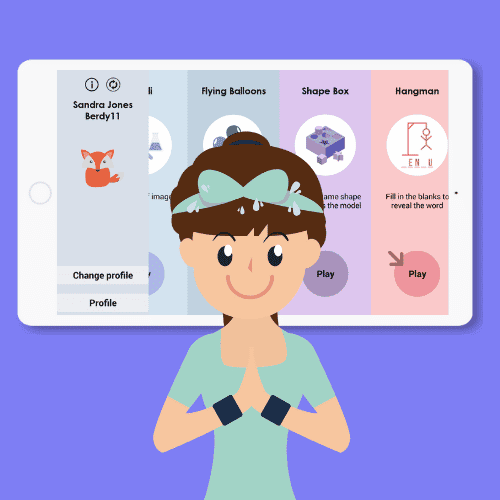Puzzles are more than just a hobby. They offer many benefits for the elderly, both mentally and physically. In this article, we’ll explore the benefits of puzzles for seniors and how they can help stimulate the mind and improve coordination. Whether you’re a senior looking for a rewarding activity, or a loved one looking to encourage an elderly relative, puzzles can be a great option.
Cognitive and mental stimulation
Puzzles require mental concentration and sustained attention, which helps to stimulate seniors’ cognitive abilities. Working on a puzzle, they have to analyze, solve problems and use their memory and logic. This cognitive stimulation can help maintain and improve seniors’ mental faculties, in particular their reasoning ability, short-term memory and logical thinking.
Improve coordination and fine motor skills
Handling puzzle pieces helps improve coordination and fine motor skills. They have to grip and place the parts with precision, which puts a lot of strain on their muscles and joints. This activity can be particularly beneficial for older people with dexterity or coordination problems. By playing puzzles regularly, senior citizens can strengthen their hand-eye coordination and maintain their physical agility.
Reduction of stress and anxiety
Puzzles are a relaxing and soothing activity for many older people. By concentrating on assembling the parts, they can relax and disconnect from everyday concerns. This immersion in activity can help reduce stress, anxiety and feelings of loneliness. Puzzles also offer a sense of accomplishment as the pieces gradually come together, which can boost self-esteem and emotional well-being.
Memory and problem-solving training
Puzzles challenge seniors’ memory, asking them to recall shapes, colors and patterns to find the right matches. This can be particularly beneficial for people with memory disorders, such as Alzheimer’s disease. Puzzles are a fun way to maintain memory and strengthen brain connections. In addition, solving a puzzle also stimulates problem-solving skills, encouraging seniors to find strategies and approaches to overcoming the challenges posed by the puzzle.
Social activity and experience sharing
Puzzles can be a social activity, offering seniors the opportunity to get together, collaborate and share experiences. Group puzzles encourage social interaction, conversation and bonding. This can be particularly beneficial for older people who feel isolated or have difficulty engaging socially. Puzzles offer a shared activity and informal conversation, which can improve their emotional well-being and sense of belonging.
Choosing the right puzzles for seniors
It’s essential to choose puzzles adapted to seniors’ abilities and interests. Here are some tips for selecting the right puzzles:
- Level of difficulty: Choose puzzles with an appropriate level of difficulty. Start with simpler puzzles and gradually increase the complexity as the seniors’ skills improve.
- Theme and interests: Consider the personal interests of senior citizens when choosing puzzles. Familiar and appealing images can help to stimulate their interest and motivation.
- Part size: Make sure parts are large enough and easy to handle for senior citizens’ hands. Thicker, larger parts provide a better grip.
- Durable materials: Choose puzzles made from durable, long-lasting materials. This will ensure their longevity and also make cleaning easier.

By following these tips, you can offer seniors an enjoyable puzzle experience tailored to their needs.
Puzzles are more than just a game. They offer a multitude of benefits for seniors, such as mental stimulation, improved coordination, stress reduction and memory training. What’s more, puzzles encourage social activity and the sharing of experiences. By choosing puzzles adapted to seniors’ abilities, you can offer them a fun and rewarding activity.
Don’t forget to make puzzles a regular part of your seniors’ daily routine, so they can enjoy the many benefits. Encourage them to engage in individual or group puzzles, according to their preferences. Puzzles can be an excellent activity for stimulating the mind, improving coordination and promoting well-being in senior citizens.
An adapted application: SCARLETT
A brain training program with more than 30 memory games for people with mild to severe cognitive disorders, such as Alzheimer’s disease, Parkinson’s disease and other neurodegenerative diseases.
- A simple interface,
- 3 levels of difficulty per game,
- No WiFi required
Try the app for free for 1 week, on all Android and Apple tablets!

Other articles that might interest you:
How Parents Can Contribute to Teacher Training
As we delve into the realm of education, it becomes increasingly clear that teacher training is not merely a...
Differentiated Instruction Approaches: Training and Practical Application
Differentiated instruction is a pedagogical approach that recognizes the diverse needs of students in a classroom. It...
Key Skills Teachers Need to Support Students with Special Needs
As we embark on our journey to support children with special needs, it is essential for us to cultivate a deep...







